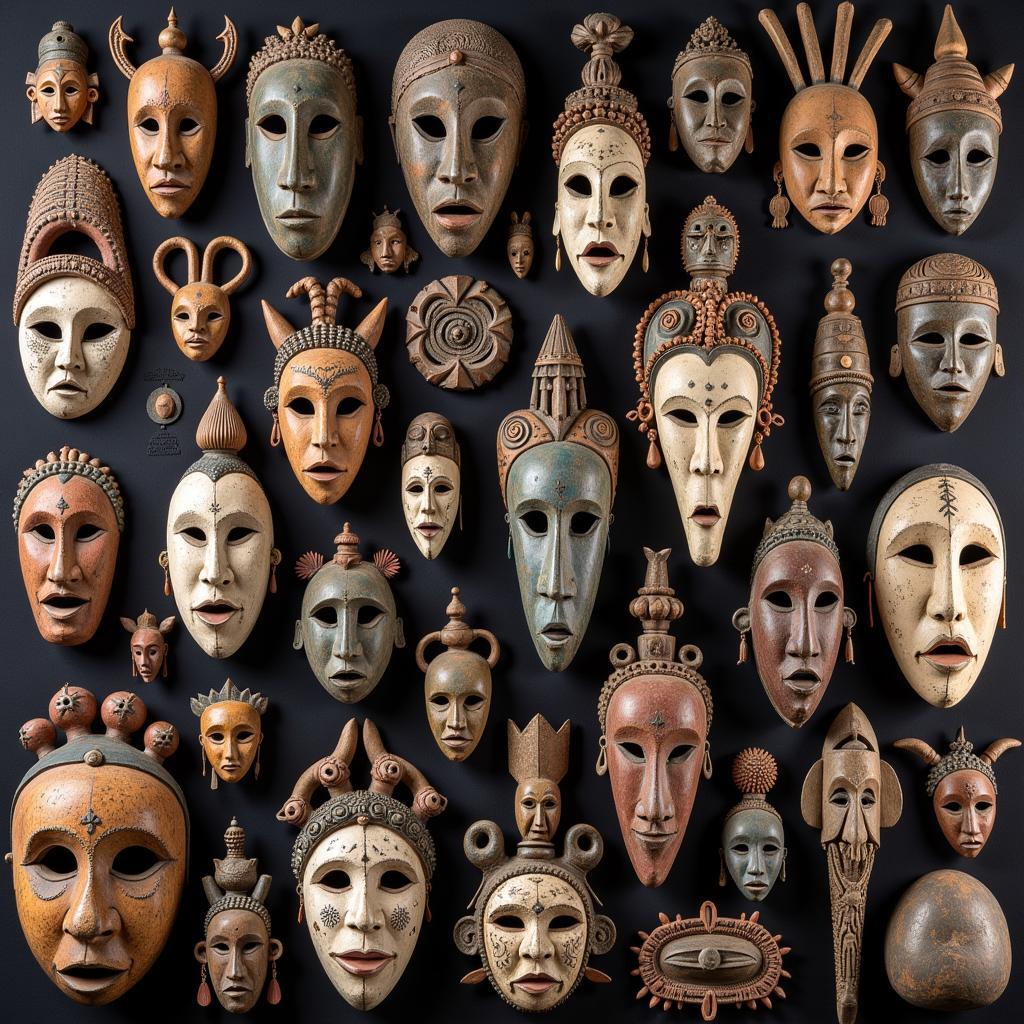Unveiling the Beauty of African Couture
African Couture is reshaping the global fashion landscape, showcasing the continent’s rich cultural heritage and artistic innovation. From vibrant textiles and intricate beadwork to bold silhouettes and contemporary designs, African couture represents more than just clothing; it’s a powerful expression of identity, creativity, and a celebration of African aesthetics. This article delves into the world of African couture, exploring its history, key designers, and the impact it has on the international fashion scene. After reading this, you will have a deeper understanding of the artistry and cultural significance behind this captivating fashion movement.
A Rich Tapestry: The History of African Couture
African fashion has a long and diverse history, deeply rooted in tradition and cultural expression. For centuries, clothing and adornments have played a significant role in communicating social status, ethnicity, and spiritual beliefs. The evolution of African couture draws upon these traditions, blending ancestral techniques with modern design sensibilities. From the intricate weaving of kente cloth in Ghana to the elaborate beadwork of the Maasai people in Kenya, these traditional crafts have laid the foundation for contemporary African couture. The rise of independent African nations in the mid-20th century sparked a renewed interest in celebrating African identity, leading to the emergence of a distinct African fashion aesthetic.
See these stunning african couture dresses.
Key Players in African Couture
Several talented designers have been instrumental in bringing African couture to the global stage. These visionaries are not only creating stunning garments but also challenging stereotypes and redefining perceptions of African fashion. Designers like Maki Oh, known for her innovative use of indigo-dyed fabrics, and Lisa Folawiyo, celebrated for her intricate beadwork and embellishments, are just a few examples of the creative forces shaping the future of African couture. Their designs often incorporate traditional African textiles and techniques, while simultaneously pushing boundaries and embracing contemporary silhouettes.
African Couture: A Global Phenomenon
African couture is no longer confined to the continent; it has become a global phenomenon, captivating fashion enthusiasts worldwide. From the runways of international fashion weeks to red carpet events, African designers are making their mark and inspiring a new generation of fashion creatives. The increasing visibility of African couture is a testament to its unique aesthetic and the growing appreciation for African artistry. This global recognition has also led to greater economic opportunities for African designers and artisans.
What is the Difference Between African Fashion and African Couture?
While both celebrate African aesthetics, there’s a distinction between African fashion and African couture. African fashion encompasses a wider range of clothing and styles, including everyday wear and ready-to-wear garments. African haute couture, on the other hand, represents high-end, bespoke creations, characterized by intricate craftsmanship, luxurious fabrics, and meticulous attention to detail. These one-of-a-kind pieces are often made to order for specific clients and reflect a higher level of artistry and exclusivity. Think of the difference between a beautiful, well-made dress and a breathtaking, custom-designed gown.
Explore more about african inspired gowns.
How is Technology Influencing African Couture?
Technology is playing an increasingly important role in the evolution of African couture. From e-commerce platforms that connect designers with global customers to digital design tools that facilitate creativity and innovation, technology is empowering African designers and expanding the reach of their creations. Social media platforms have also become essential tools for promoting African couture and connecting with a wider audience. This digital revolution is helping to democratize the fashion industry and create new opportunities for emerging talent.
The Future of African Couture
The future of African couture is bright, filled with immense potential and exciting possibilities. As more and more designers emerge and gain international recognition, African couture is poised to become an even more prominent force in the global fashion industry. The growing demand for sustainable and ethical fashion also presents a unique opportunity for African designers to showcase their commitment to responsible production practices and environmentally friendly materials.
In conclusion, African couture represents a vibrant and dynamic force in the fashion world. From its rich history and cultural significance to the innovative designs and global impact, african lace fashion design continues to captivate and inspire. The journey of African couture is a testament to the power of creativity, cultural expression, and the enduring legacy of African artistry. Embracing tradition while looking towards the future, African couture promises to shape the landscape of fashion for generations to come.
FAQ
- What are some popular African fabrics used in couture? Some popular choices include Ankara, kente, Aso Oke, and mudcloth.
- Where can I buy authentic African couture? Many designers have online stores, or you can find boutiques specializing in African fashion.
- How can I support African designers? Follow them on social media, share their work, and purchase their designs.
- Are there any ethical considerations when buying African couture? Look for designers who prioritize fair labor practices and sustainable materials.
- What is the significance of african divination jean? It represents a modern take on traditional African spirituality expressed through fashion.
- How is African couture different from Western couture? African couture often incorporates traditional techniques, textiles, and cultural narratives.
- What are some key trends in African couture? Bold prints, vibrant colors, and intricate embellishments are prominent trends.
For further assistance, please contact us at +255768904061, [email protected], or visit us at Mbarali DC Mawindi, Kangaga, Tanzania. Our customer service team is available 24/7.
